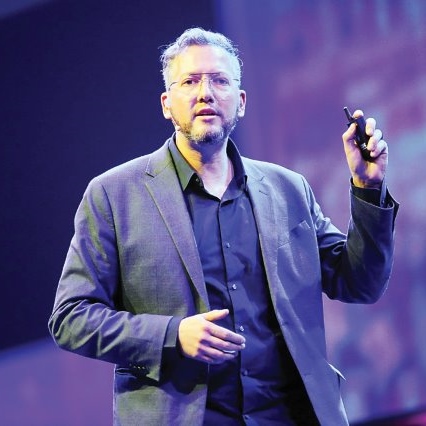Featured Item
The future is going to be weird
When Shayne and Mic Mann brought Singularity University to South Africa, the journey took the two brothers to Singularity summits around the globe. Listening to some of the world’s leading experts in disruptive technology has turned the Manns into experts in the field.

HOWARD SACKSTEIN
Mic relates the story of Julius Yego, the Kenyan field and track athlete who won the Commonwealth Games gold medal in javelin after teaching himself to throw the shaft by watching YouTube videos. Kyle Giersdorf, the 16-year-old world Fortnite champion, won a title prize of $3 million (R43.7 million), earning more than the winners of Wimbledon. Clearly your kids should get off the tennis court and start playing computer games! More than 40 million people competed for the championship, and the title was crowned before a capacity crowd in the Arthur Ashe stadium in Flushing Meadows, New York.
The world is clearly changing. Traditional tertiary institutions like universities are fast being replaced by online courses from the Kahn Academy and websites such as Udacity. Education is becoming democratised and accessible. Education is no longer the exclusive province of the elite. Today, all you need is a cell phone and an internet connection. And that is why cheap data is a fundamental prerequisite for growth in the developing world. Once you allow mass access to education and take it beyond the stuffy ivory towers of dated institutions, you can move from scarcity to abundance. Udacity now enrols more than 50 000 students a year, registered in its online nanodegree paid programmes, a far cry from the days when people approached the few monks of the Catholic Church to write letters home to their families.
How we earn our money is also changing. Tyler Blevins is a professional gamer with more than 14 million followers, people who pay to watch him play computer games. Last year, his earnings topped $10 million (R145.7 million). But all of that fades into insignificance next to Ryan Kaji, the eight-year-old toy reviewer who brought in a whopping $22 million (R320.5 million) from his YouTube channel. Nice work if you can get it as an eight-year-old. Eat your heart out Shirley Temple!
The Chinese love their “Live Streamers”, people who show live video content about crucial life-saving topics like make-up and clothes. Some of them make more than $5 million (R72.8 million) a year. The world has become voyeuristic – and not in a good way.
The new 14-second music video sharing app, TikTok, is now valued at more than $75 billion (R1 trillion), not bad for an app that’s only two years old, and more than twice the value of South African mining giant Anglo American.
Taddy Bletcher’s Maharishi Institute in South Africa is training a new breed of job seekers to be “data labellers”, people who teach artificial intelligence to recognise objects. A small child might automatically understand what a cat looks like, but an artificial intelligence computer might have to see millions of images of a cat before it understands what those furry, sulky things are. We just hope that the AI computers pay their slaves well for these menial tasks.
Mic concludes with a lesson on the three skills that we will all need for the future: agility to change, the creativity to perform tasks that computers will be incapable of, and trusted reliable networks of people to rely on.
The future is upon us, and it may be a lot weirder than we ever imagined.